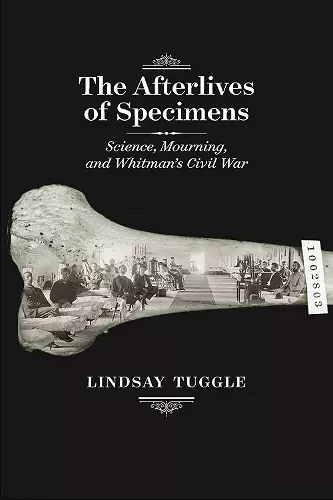The Afterlives of Specimens
Science, Mourning, and Whitman's Civil War
Format:Paperback
Publisher:University of Iowa Press
Published:30th Nov '17
Currently unavailable, and unfortunately no date known when it will be back

This non-fiction paperback, "The Afterlives of Specimens" from Lindsay Tuggle, was published 30th November 2017 by University of Iowa Press.
ISBN: 9781609385392
Dimensions: unknown
Weight: 450g
276 pages